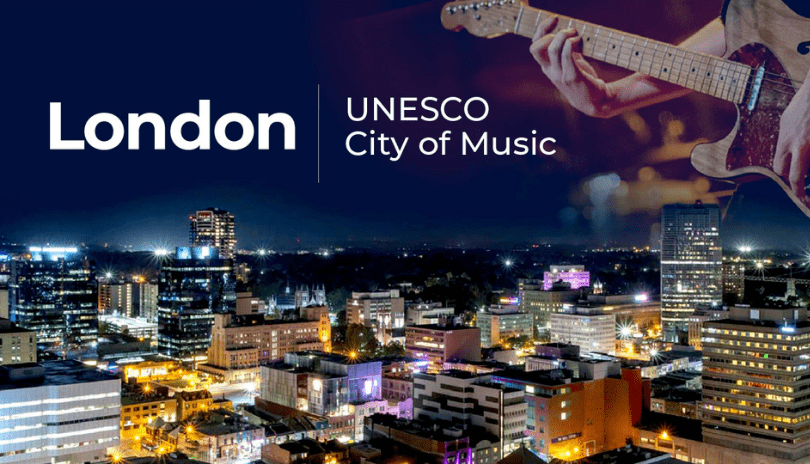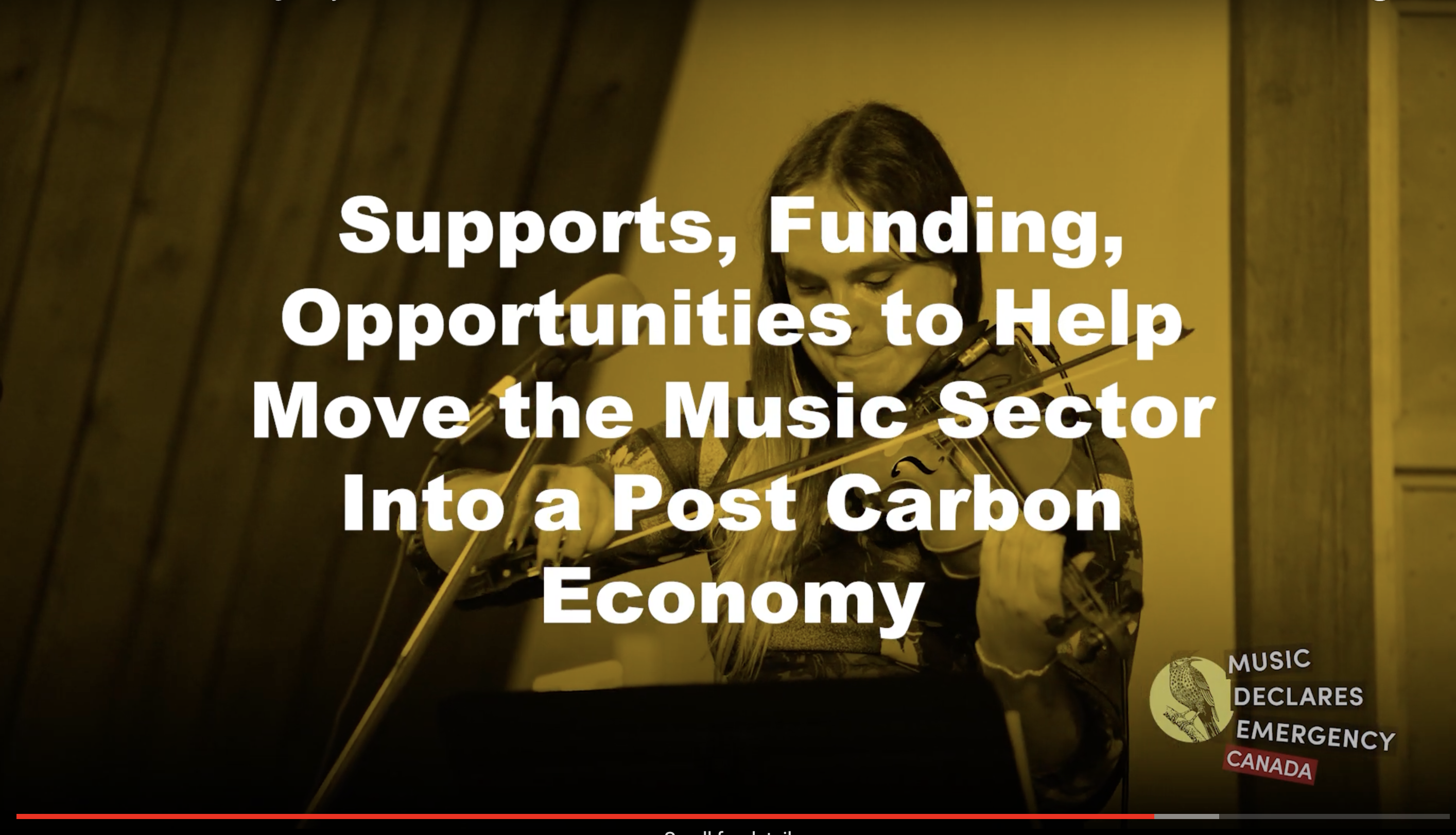
London hosted the 2023 Folk Music Ontario (FMO) Conference. Almost 800 people registered for the four-day event. Making it 15% bigger than the last edition. This year also included a free three-day folk festival to include the general public.
London lived up to its official designation as a City of Music this weekend... The Southwestern Ontario city is among the top in Canada for supporting and celebrating musicians. - London Free Press
Beyond the usual conversations in topics such as managing and organizing festivals, professional development, folk in film, grant writing, managers and agents meetups, and an award ceremony; the event also had sessions addressing mental health, diversity, inclusion and environmental issues. There were sessions addressing neurodivergence, scarcity mindset and personal well-being, navigating eco-anxiety, music creation and transmission in the context of social movements and political turmoil.
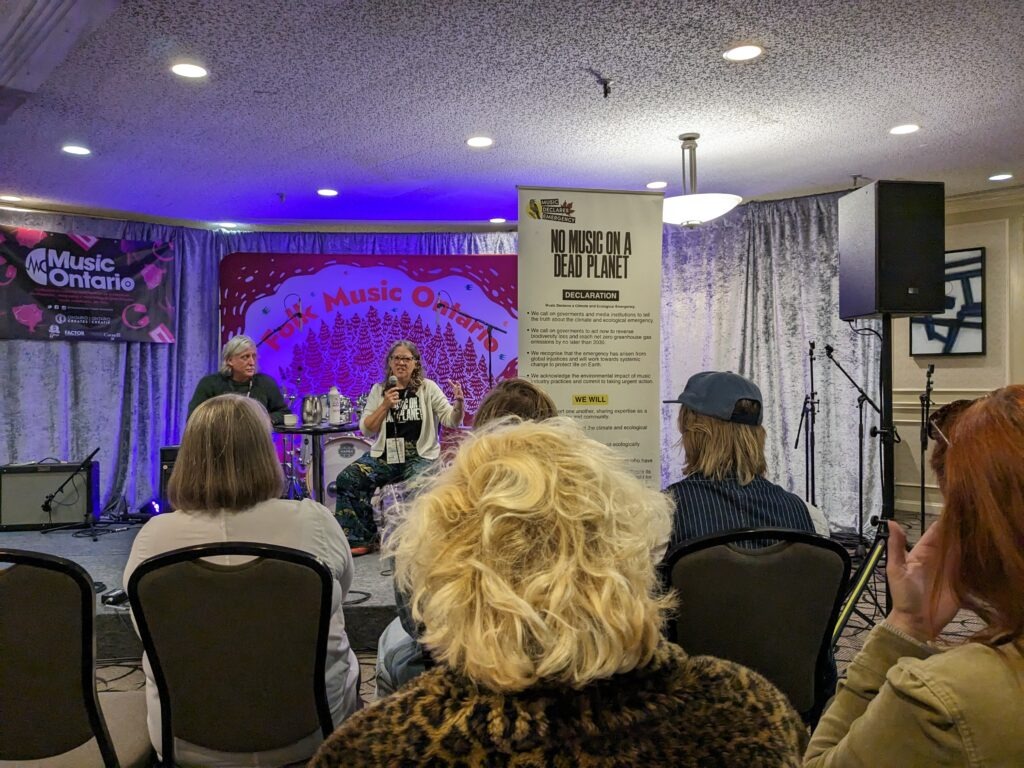
No Music on a Dead Planet
One of the sessions looked at the role of music in addressing the climate emergency from making art to practical solutions around touring and merch. It was hosted by a powerful duo: Halifax Climate Change Specialist Kim Fry and Senior Program Adviser at the Department of Canadian Heritage Peter Zwarich.
Green Touring Practices
Touring is one of the contributors to the music industry's carbon footprint. Reducing energy consumption, using eco-friendly transportation, and investing in carbon offset programs are some of the ways that artists and event organizers can improve their impact.
Sustainable Venues
Building retrofits is a major climate solution and music venues are no exceptions. Even open spaces can implement eco-friendly infrastructure and practices, replacing diesel powered generators and gear and rethinking the use of plastic and disposable material.
Merchandise and Physical Media
All types of merch, particularly clothing (shirts, hoods, hats) can have a much smaller footprint when they are sourced from eco-friendly companies.
The conference itself made an effort to walk the talk (or maybe I should say "bus the music"). A free shuttle between Toronto and London was available to encourage people to drive less.
According to Kim Fry, Canada has some catching up to do, some countries are years ahead in their efforts to create a sustainable music industry. UK Music, for example, has a sustainability policy with a list of campaigns and organizations supporting more sustainable practices. It is also involved with Public Advocacy to create structural changes.
Speaking of campaigns, Music Declares Emergency is an international group that "calls for an immediate governmental response to protect all life on Earth." Kim is the coordinator of the Canadian chapter. The campaign is one of the many initiatives of an organization called Julie's Bicycle (JB). Working with the music industry since 2007, JB has a wealth of resources including the music top tips guide (see image below).
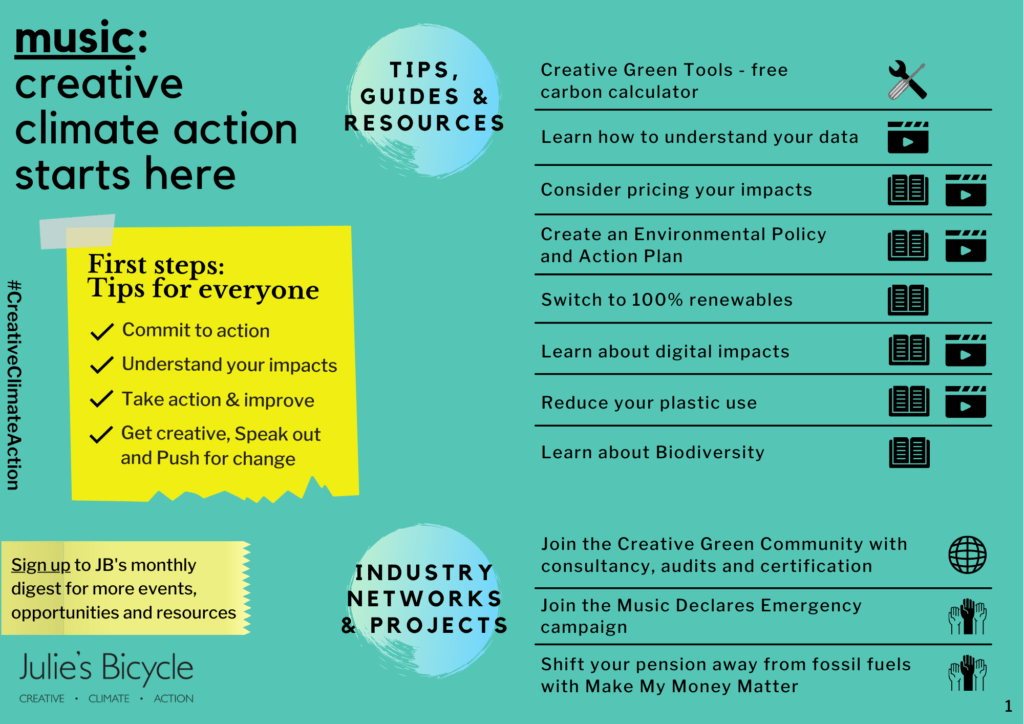
Music as an Agent of Change
Those above, are examples of the music industry as a target of change. Part of the discussions were about the music industry as an agent of change. Kim and Peter talked about "musicians unique ability to reach people's hearts and inspire change."
Music possesses the incredible ability to unite people across demographic, geographic, and social boundaries. It is a universal force that can bring communities together and encourage social cohesion. Whether through communal singing, dancing, or the shared experience of live performances, music creates a sense of belonging and shared purpose. The bonds formed through musical experiences can become a catalyst for collective action, contributing to the achievement of sustainable development goals.
Music can also be a powerful tool for raising awareness about important global issues. Through lyrics and melody, musicians can convey messages about social justice, environmental conservation, and other critical topics. Such songs can inspire individuals to take action, support meaningful causes, and hold governments and corporations accountable for their actions.
Music for SDGs: from individuals to systems
Music, often considered a universal language that transcends borders, has the remarkable power to inspire, unite, and bring about positive change. Igniting individual action is a necessary condition but it is not sufficient.
In the quest for sustainable development, a holistic approach is essential, addressing not only economic and environmental factors but also the cultural and social aspects of human well-being. Laws, regulations, physical and social infrastructures are some of the systems that can be altered to create more favourable conditions for change.
Shain Shapiro is the founder and chairman of the economic consultancy Sound Diplomacy and director of the global nonprofit Center for Music Ecosystems. In his recently published book This Must Be The Place: How Music Can Make Your City Better, he makes the case for a Music Ecosystem Policy. Given the significant impact that music can have on talent retention, tourism, economic development, zoning codes, planning, local climate action, belonging and so many other issues that matter to cities.
This Must Be The Place introduces and examines music’s relationship to cities. Not the influence cities have on music, but the powerful impact music can have on how cities are developed, built, managed and governed. - Shain Shapiro
Kim and Peter provided a few examples of what structural change looks like in practice. One good example of regulation that needs some update is the radius clause that prevents artists from performing in cities close to each other thus making it harder to optimize their routes when they are touring.
Another example of a necessary system change, shared during the session, was the source of total GHG emissions generated by live concerts. As much as artists want to reduce their impact, 80-85% of emissions from big events come from the audience getting to the venue. A different way to plan, design and build cities is required to make cycling and public transit more convenient than driving.
Those are only two small examples. A research from Griffith University looked at 109 projects around the world and their impact across all 17 SDGs.
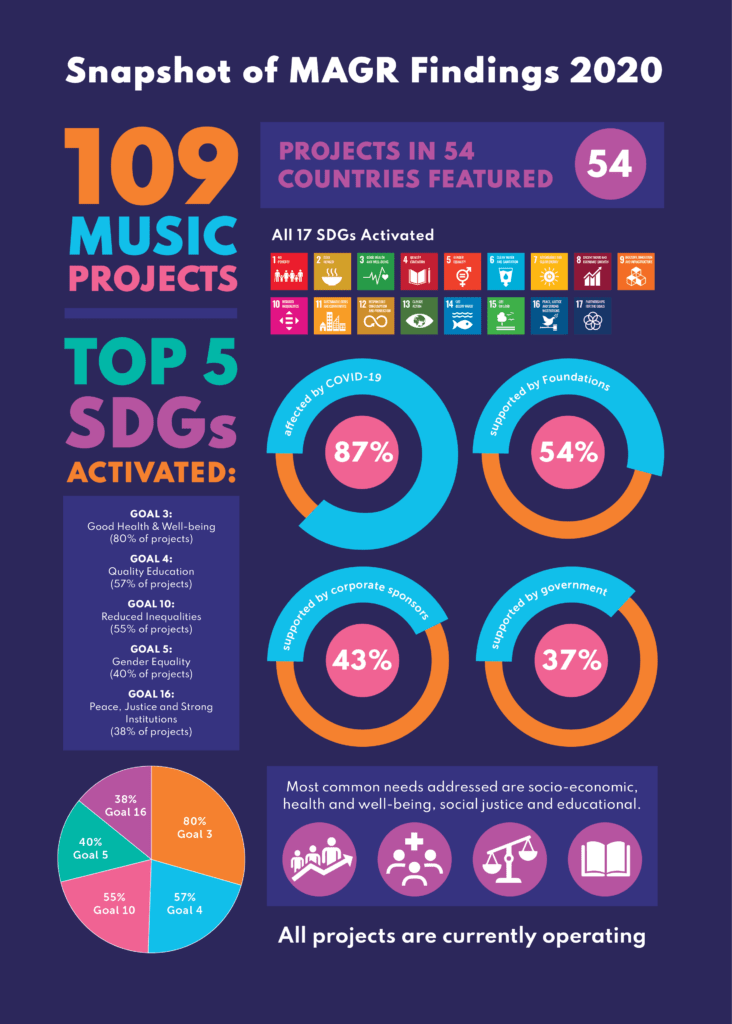
Those are only a few initiatives that recognize how much music can contribute to the changes that we need right now.
Join the Party (Take Action)
We can all be part of the change whether you are musician, manager, decision-maker, city builder or music lover.
- Sign the declaration as an artist, music lover or organization.
- Attend Tempo! Music for Climate Action, on Oct 27, 2023 at Western University.
- Explore the research study from Griffith University with examples around the world using music to leverage the SDGs.
- Read Your Guide to Music and the SDGs
SDG Cities is a collaborative project of 10C Shared Space and Pillar Nonprofit Network
--
London (Canada) was recognized on November 8, 2021, as Canada's first UNESCO City of Music. The UNESCO Creative Cities Network (UCCN) strives to promote cooperation with and among cities that have identified creativity as a strategic factor for sustainable urban development and to help achieve the Sustainable Development Goals (SDGs).
